After an unprecedented week in presidential politics that featured GOP nominee Donald Trump’s offensive rhetoric toward women, both party nominees took the stage for the second, highly anticipated presidential debate. All eyes were not on the issues or the candidates’ policy records or visions for America. America, and the rest of the world, was more focused on how the GOP nominee’s recently revealed dirty laundry would be discussed.
Donald Trump had a tall order: to convince America he was not the same man heard on a hot mic 11 years ago, that his values and vision would improve the lives of all Americans, and to convince Republicans jumping ship in droves that his candidacy was still viable.
By those metrics, the first 30 minutes of Trump’s performance were a failure. He brought up President Clinton’s indiscretions, continued the barrage of interruptions that characterized his first debate performance, cited clearly “fact-checkable” claims that were not true, threatened to imprison his political opponent, referred to Clinton as “the devil,” and brushed over, rather than sincerely apologize, for his comments about women.
To Anderson Cooper’s and Martha Raddatz’s credit, they steered the debate toward real issue and topics that will matter to the everyday lives of Americans. It cannot be understated how effectively moderators played their role tonight. They aired the dirty laundry—which, frankly, was a requirement given the news cycles of the past week. However, Cooper and Raddatz moved on to topics like health care, relations with the Muslim community, immigration decisions around Syrian refugees, tax policy, and more.
The answers from the candidates included a blend of their campaign positions on the issues and attacks on their opponents. That should not be seen as a weakness from Clinton or Trump. Articulating one’s own positions while attacking an opponent’s is part of politics. Unlike the first presidential debate and the vice presidential debate, this debate featured a discussion of legitimate, meaningful public policy. Hillary Clinton does not deserve credit for that, even though her answers responded to those questions. Donald Trump does not deserve credit for that, even though his answers responded to those questions. The moderators as well as the audience and online questioners deserve the credit for pushing the candidates to engage as such.
Who won and who lost?
Clinton remained poised during the hammering from Trump and tougher-than-the-first-debate questions from the moderators and audience. She offered sound responses to the questions and did not fall apart or stray from the type of steadiness she showed in the first debate. In particular, Clinton showed her policy chops in discussing the specifics of foreign policy, especially in the Middle East, in a manner that showed a coziness with the details rather than simply talking points. She achieved what she needed to achieve, although she likely did not widen the polling lead she accumulated over the past two weeks.
As discussed, Trump had a challenging first 30 minutes of the debate. He recovered, however. The viewing audience’s response to the remainder of the debate likely went in one of two different directions. Those that loved Trump before the debate thought he was dominant when he discussed policy. Those that loved Clinton before the debate thought her performance was masterful. Trump talked very critically about the fallout of Obamacare in a way that may not have landed powerfully for all Americans, but for undecided voters who are struggling to find affordable health care, his discussion of this issue surely connected.
For Trump, you could consider this a success. On the whole, he did not appear as unhinged and uneducated as he did in the first debate. He seemed more in control and more willing to engage the issues than he did a week and a half ago. Yet, his performance was not impressive nor was it one that showed up Clinton. The result: Trump did not sufficiently move the needle after a week of disastrous polls, disastrous media coverage, and campaign setbacks that were deemed by some as politically fatal. He needed to change the dynamics of the race, instead he likely stopped or slowed the bleeding. The trouble for Trump is simple. He may not have lost voters tonight, but he did little to affect the decisions of people who thus far have been unwilling to commit to him. Over the next few weeks, Trump needs to change the minds of literally millions of American voters. He did not achieve that tonight. He did, however, achieve one thing: he set up the third presidential debate next week at UNLV to be a blockbuster event that will be meaningful for the outcome of the election.
Ultimately, the second presidential debate was easier to watch, more informative, and frankly, more presidential than the previous two debates. It may not have changed the dynamics of the race—something that hurts Donald Trump. It did not draw to a close the competitiveness of the presidential race—something that must seem a missed opportunity for Hillary Clinton. But ultimately, no presidential election should end four weeks before Election Day. So, the horse race continues, and the American public learned more about the two candidates—personally, professionally, and policy-wise—than we had in the last few months. Each debate has come with tremendous anticipation, but now all eyes turn to the heavyweight match on October 19th in Las Vegas.
The Brookings Institution is committed to quality, independence, and impact.
We are supported by a diverse array of funders. In line with our values and policies, each Brookings publication represents the sole views of its author(s).


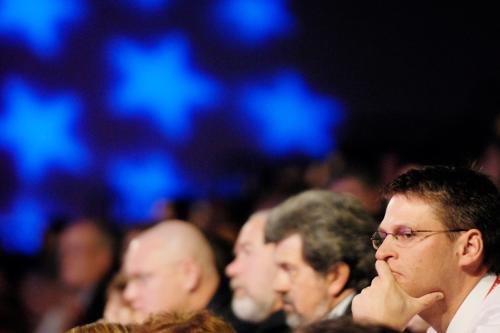
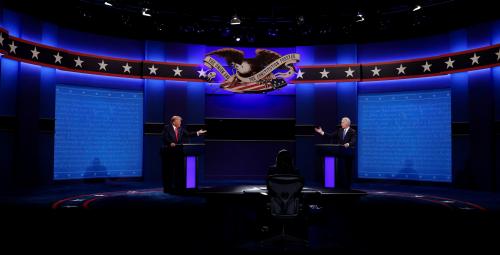
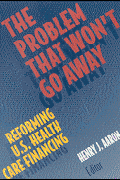

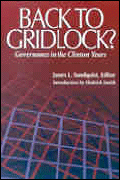


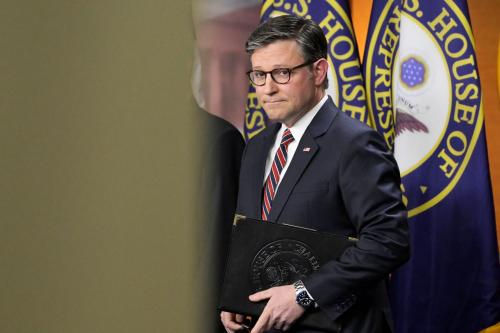
Commentary
After a draw in the second debate, will we see a knockout in the final one?
October 9, 2016